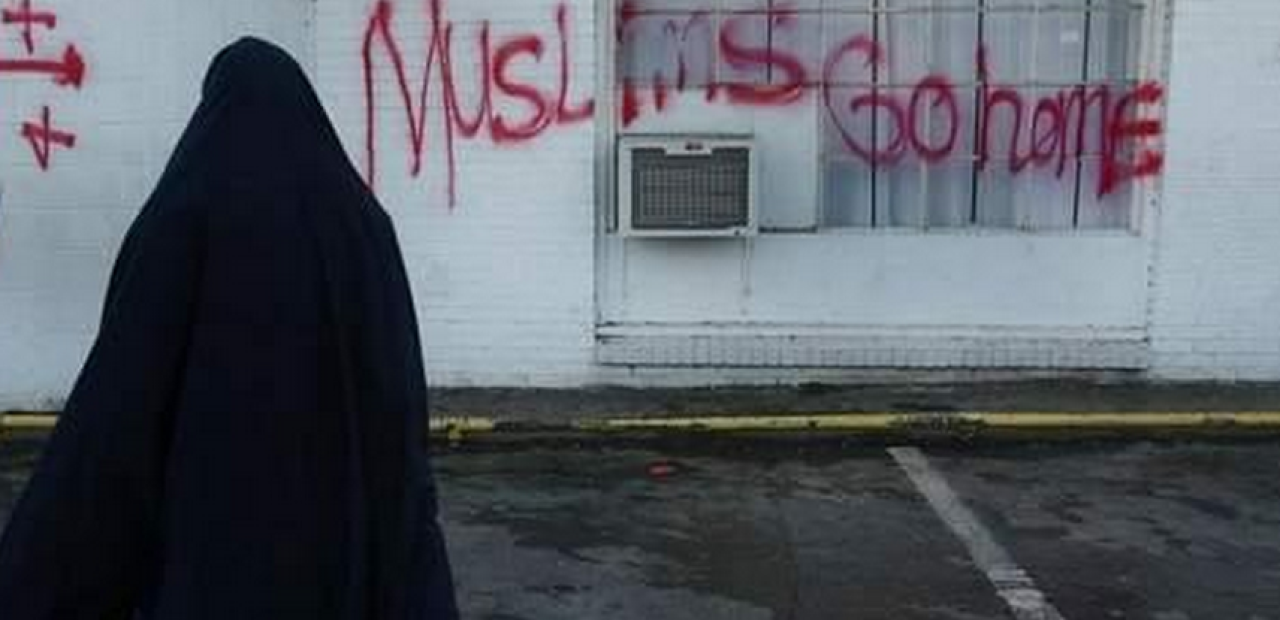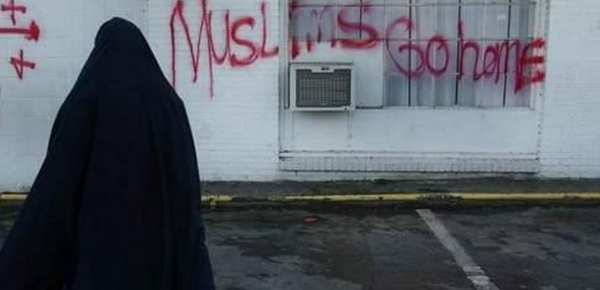
By: Derrick Clifton
Source: http://mic.com/
The actions of 19 Islamic extremists on 9/11 left an indelible mark on America. Today, millions pause to commemorate the attacks’ 13th anniversary, to honor the victims and to remember that all life is special and sacred. But there’s an untold story amid the many speeches and moments of silence — one filled with a different kind of pain, grief and strong sense of loss.
Those stories are now being told on social media by countless people of Middle Eastern descent, in America and around the world, whose lives were dramatically altered in a very specific way by 9/11’s aftermath.
Islamophobia didn’t begin on #September11. But was intensified – on the ground, and through law. pic.twitter.com/qlUimVS1cn
Despite the fact that many Muslims practice a peaceful, loving and compassionate interpretation of Islam — one that traces back centuries before 9/11 — Muslim communities in America have endured racial profiling, harassment, violent threats, beatings and murders in the days and years that immediately followed. Indeed, the harrowing specter of Islamophobia continues to fuel hurtful intolerance and bigotry across the country, all because of a handful of al-Qaida operatives.
The widespread, irrational fear violently targeted Muslims and many other ethnic and religious minorities of various backgrounds — whose appearance, for whatever reason, also became associated with terrorism. It included Sikhs, representing the fifth-largest organized religion in the world, who also experienced anincrease in hate crimes following the attacks.
Balbir Singh Sodhi was murdered 4 days after #September11. 1st victim of a fatal 9/11 Hate Crime. #911anniversary. pic.twitter.com/h2uUgk4dwg
Seeing a post passed around on Facebook, just last month: “Life without Muslims – a world without Muslims: perfect.”
9/11 taught me that being a Muslim kid in upstate New York meant being alienated and isolated without understanding why- just b/c of faith.
My parents won’t let me wear a hijab because they think once I leave the house, I won’t come back alive. Hows that for freedom.
“they said some Muslim terrorists exploded a building.” “Aaminah, aren’t you Muslim?” I was forced to grow up at eleven years old.
On 9/11 in 2007 a guy in school punched me because I was a Muslim and I “deserved to die”. The school suspended both of us.
As can happen in the wake of anational tragedy, some angry Americans took out their frustration on a segment of the population that looked like what they thought terrorists looked like. It didn’t take long for the images of al-Qaida leaders like Osama bin Laden to be tied to Islam and, from them, a stereotype was born. The two wars that followed — and their resulting around-the-clock media coverage — didn’t help matters much, as Westerners began implicitly associating Islam with images of radical leaders, overlooking or ignoring the many Middle Eastern and Muslim people born and raised in their own communities.
They grieved alongside their non-Muslim neighbors on 9/11. But as the days and weeks went by, and as the tweets show, it became clear that America was ushering in an unfortunate “new normal” — one where discrimination was becoming the rule rather than the exception.
9/11 did change life for a lot of Americans , but it also changed life for Every Muslim.
Read the entire article and see the pictures here.




